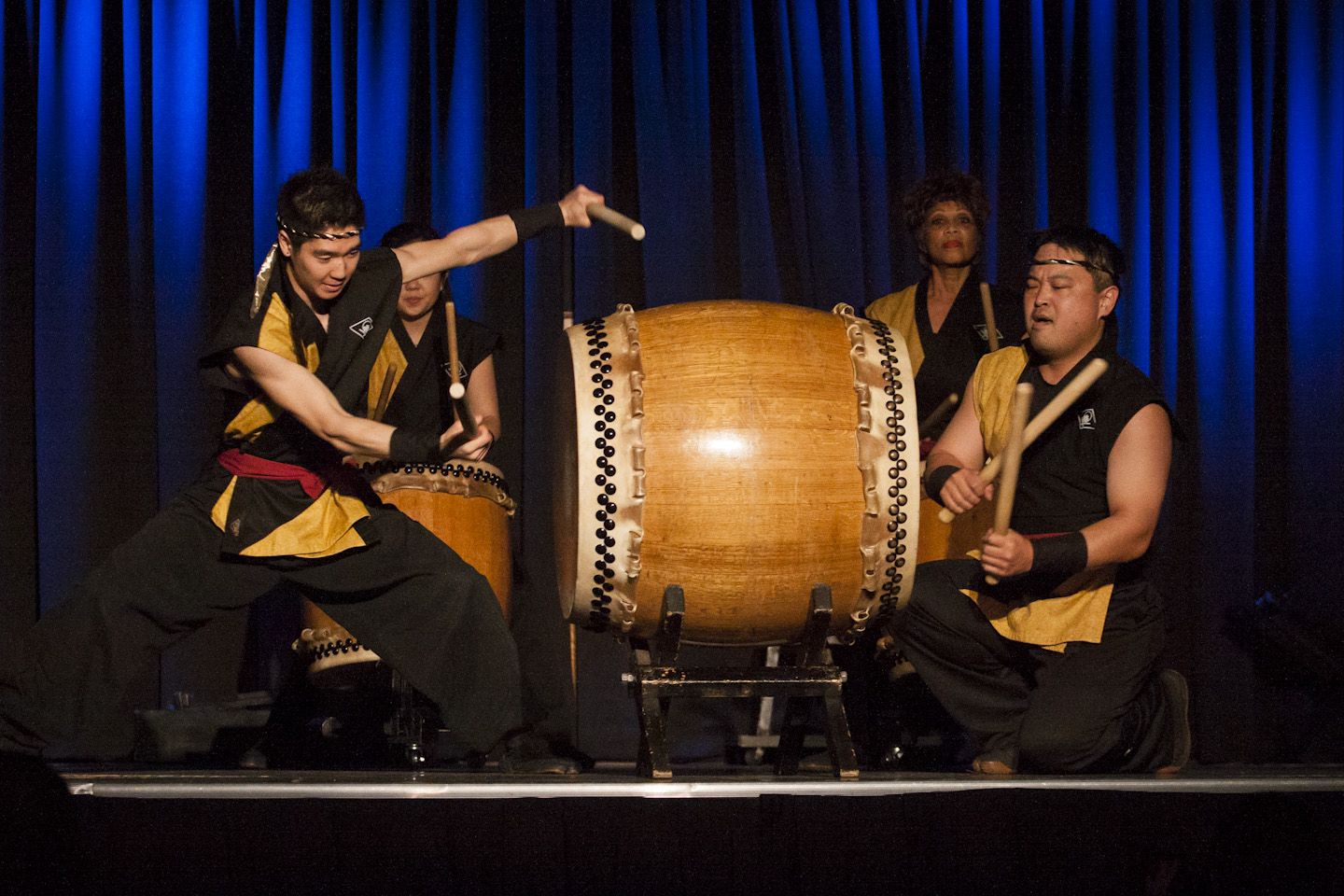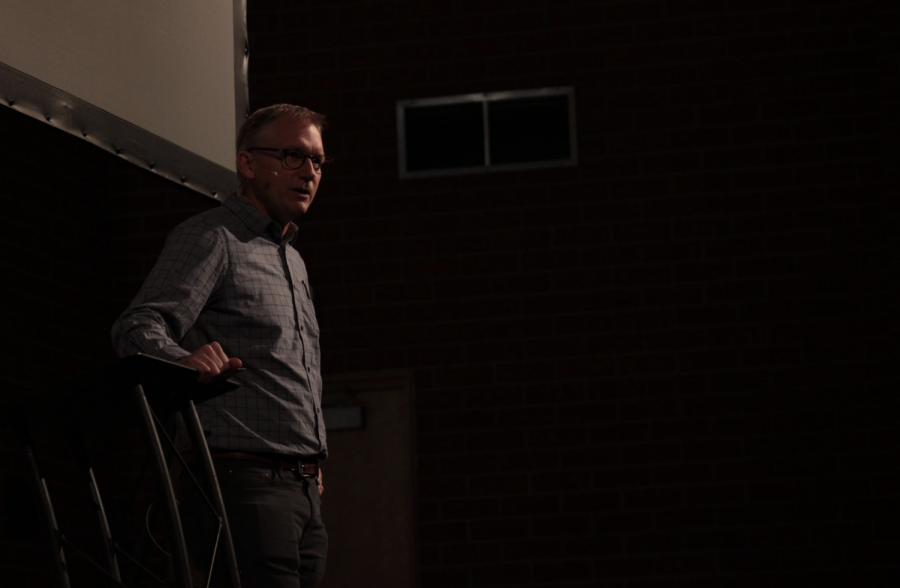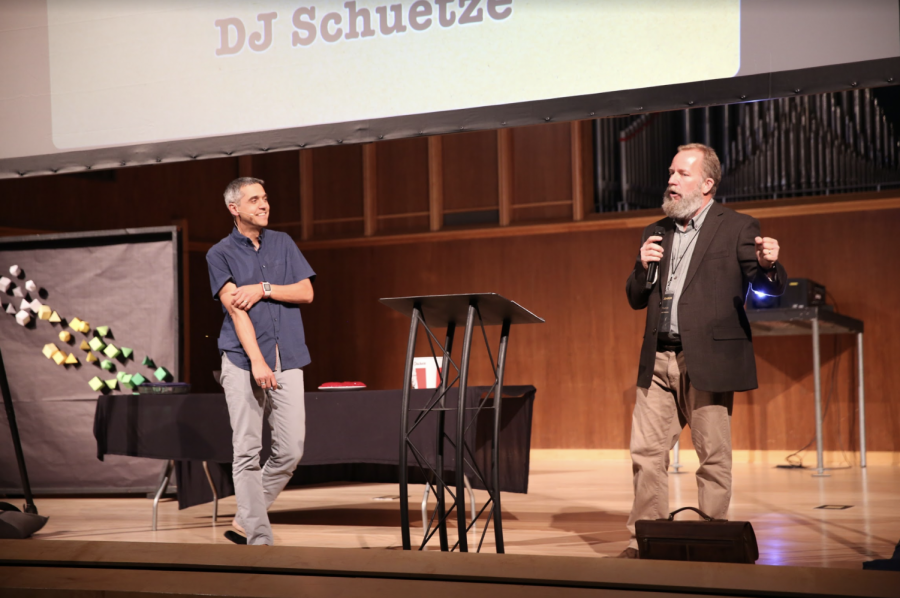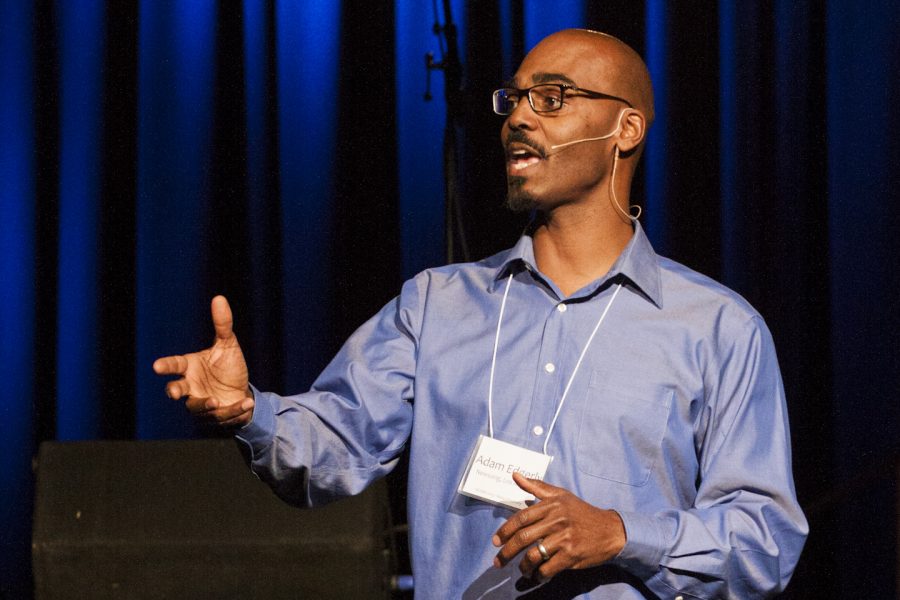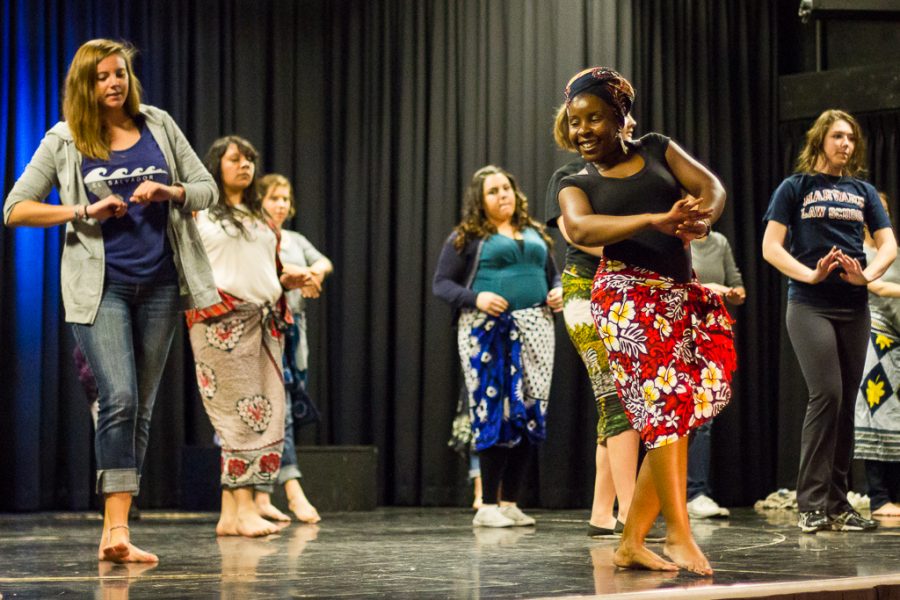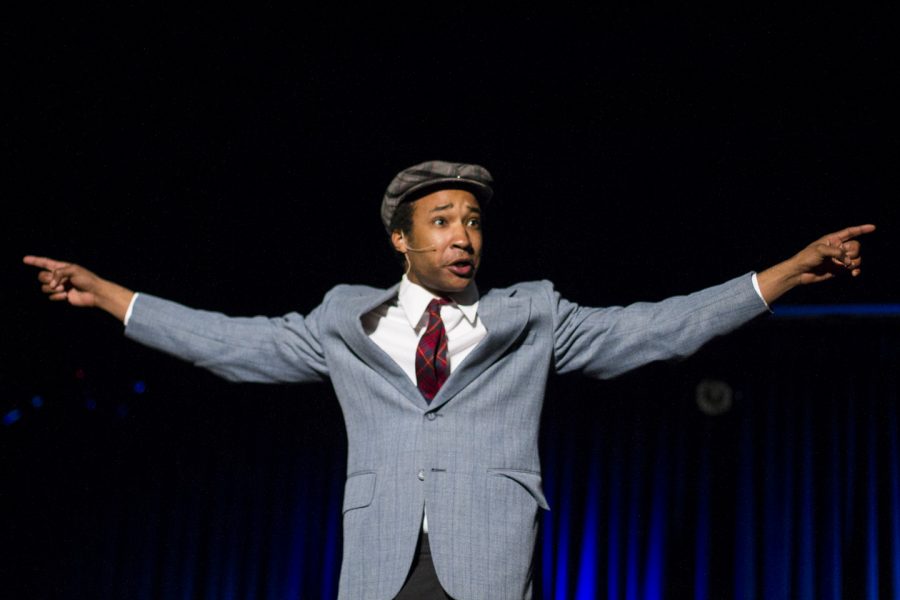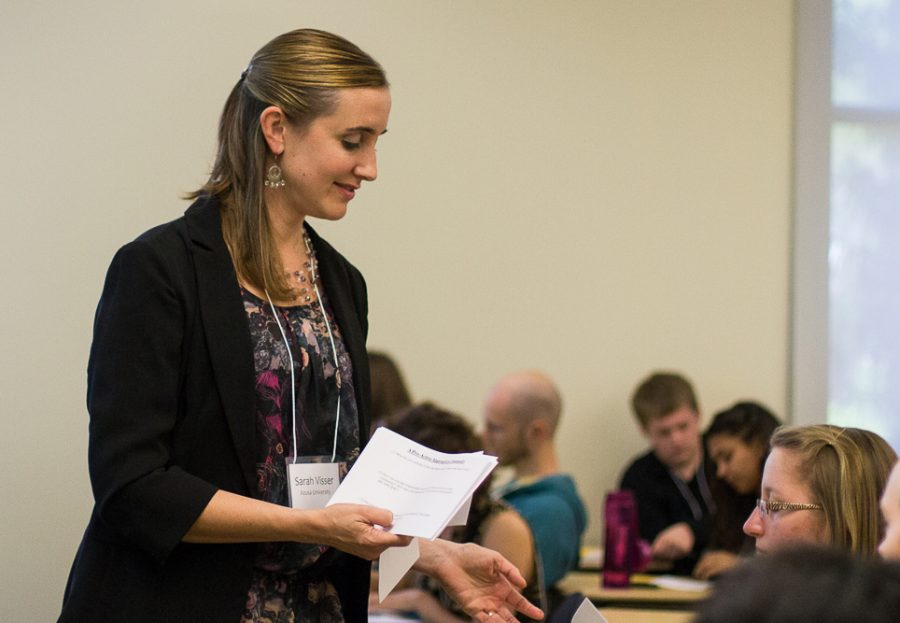The Student Congress On Racial Reconciliation is a unique opportunity to engage with the unfamiliar and seek God’s heart for reconciliation. With an open mind and willing heart, students gain new perspectives on people, culture and the Kingdom of God.
The last session opened with a traditional Taiko drum performance, providing a glimpse of the creativity and beauty of this Japanese art. The energetic group began by marching into Sutherland Auditorium, shouting and striking large handheld drums followed by a fun and energetic performance on stage; the performance received a standing ovation. This performance demonstrated much of what the conference stood for: the unity and commonness of the human race, but also the uniqueness of distinct cultures. It grasped something that was familiar with everyone, such as the drum instrument, and showed it through the lens of the Japanese culture.
Shortly after the performance, Michaela Gregory, a guest speaker from ReNew Partnerships, shared her testimony of racial reconciliation as a person who grew up in a primarily African-American community. I won’t do justice retelling her story as she shared it with humor, captivation and poignancy. She got to the point.
She expressed her struggles of her previous misconceptions and false assumption of the Caucasian community; being taught that “white people are the Devil”. In this, God brought healing and reconciliation into her life through a divine appointment, which led to a lasting, valuable friendship with a Caucasian woman. Together they shared their thoughts of racism, quickly realizing that many of these issues were the result of miscommunication. They were able to reconcile, and recognize that God was greater than all of it. Together, they began to do ministry in sharing the Gospel in a historically African-American college.
Through this experience, Gregory shared how our identity in Christ transcends “the whole color thing” because the Lord divinely reconciles racism. She continued to share how the Enemy will attempt to use our miscommunication as a means to bring division, hurt and pain in hopes to disturb peace and unity between God’s people. At the end of day, Gregory stated it simply, “Don’t let it get in the way of doing God’s ministry.” She finished by sharing an original poem called, “The Night I Got Straight Up Ghetto With the Enemy.”
In the final hour, Adam Edgerly, Keynote Speaker and Lead Pastor of Newsong Los Angeles Covenant Church, concluded his thoughts on racial reconciliation by sharing a passage in Luke 4. He challenged the community to seek deep within, touching base on reconciliation with oneself, the people around us, and God.
He began by targeting the individual, asking the question, “Are you reconciled with yourself … Are you reconciled with your identity?” He encouraged the audience not to run from their identity, but to understand it because our experiences define us and it shapes who we are. This includes our sorrow. Edgerly said, “Bring it to the open and work through what is painful and upsetting.” He said Jesus empathizes with us because he knows what it is like to be an outcast, refugee, and the “new kid on the block.”
Edgerly noted that reconciling with oneself is vital in reconciling with other people, saying, “In order to engage the future, we need to come to grips with our past.” This meant that our personal reconciliation would make us advocates of reconciliation. Once you love yourself for who you are, you will begin to love people for who they are. We no longer look at people through the flesh of the eyes, but through lens of God. Until we reconcile with ourselves, we are unable to carry this out sufficiently.
When we reconcile to our past, people, and God, it is at this point we are able to reconcile to an outside world that is so different. Then we can be agents of reconciliation for the Kingdom of God. This is God’s will … God reconciled with us, and He wants us to do the same with all people, including our enemies. Jesus came to the world to engage with people who were completely different than him for the sake of reconciling to the world.
God desires us to do the same. The Spirit of the Lord rests in our identity and He supernaturally empowers us to do His work. Edgerly said, “We will fail abysmally unless the Spirit of the Lord is upon us.”
He spoke with hope, knowing the power of the God we believe in. He did not only propose God as an option for reconciliation, but as the only possible way. Edgerly stated, “I want you to believe that the power of the Holy Spirit can bring racial reconciliation; it is the only that can.”



